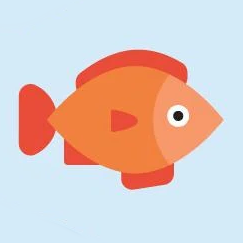Ein und eine
In English, we choose to use either a or an depending on the following word. Similarly, German switches between ein or eine depending on the grammatical gender of the noun being referred to.
| Gender | The Noun | A Noun |
|---|---|---|
masculine | der Ort the place | ein Ort a place |
feminine | die Welt the world | eine Welt a world |
neuter | das Eichhörnchen the squirrel | ein Eichhörnchen a squirrel |
Note that the masculine and neuter forms of ein are the same, unlike with der and das!
There are several other "ein-style" words that follow the same gendered inflection pattern as ein/eine. Keep their different meanings in mind!
| Noun | Mein | Dein | Sein | Kein |
|---|---|---|---|---|
der Ozean the ocean | mein Ozean my ocean | dein Ozean your ocean | sein Ozean his ocean | kein Ozean no ocean |
die Krabbe the crab | meine Krabbe my crab | deine Krabbe your crab | seine Krabbe his crab | keine Krabbe no crab |
das Problem the problem | mein Problem my problem | dein Problem your problem | sein Problem his problem | kein Problem no problem |
It makes no sense to say 'eine Plurale' (an plurals), but words like meine or keine can be used for plurals. Like with die Plurale, they follow the feminine form, regardless of the noun's original gender.
When dealing with compound words, the last word within the compound word would define the gender of the noun. For instance the noun Spiegelei includes the words Spiegel (masculine) and Ei (neuter), so in this case the ending-word of Ei would be definining gender for Spiegelei.
